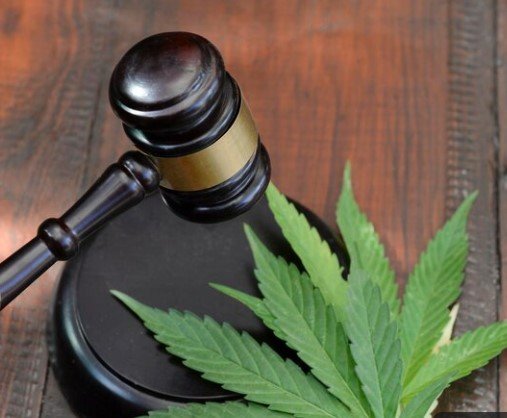A U.S. appeals court has upheld a Virginia law that strictly regulates hemp products based on total THC content, solidifying the state’s authority over hemp regulation within its borders. The decision has significant implications for businesses and consumers in Virginia’s hemp industry.
What the Virginia Law Entails
Virginia’s hemp law, enacted in 2023, sets stringent limits on the amount of THC allowed in hemp products. Under this law, hemp products cannot exceed 0.3% THC, regardless of whether the compound is delta-9, delta-8, or any other form of THC. This contrasts with previous practices in many states, which primarily focused on delta-9 THC, the most well-known psychoactive compound in cannabis.
The regulation is part of a broader push to tighten control over hemp-derived products, particularly delta-8 THC, which gained popularity as a legal alternative to marijuana in some jurisdictions. However, delta-8 THC’s psychoactive effects have sparked concerns among lawmakers and regulators, leading to measures like Virginia’s law.

The Lawsuit and Key Arguments
The plaintiffs in the case—Northern Virginia Hemp and Agriculture LLC (NOVA Hemp), Franny’s Operations, Inc. (Franny’s Farmacy), and Virginia resident Rose Lane—challenged the law on several grounds. They argued that:
- Federal Preemption: The plaintiffs claimed that the 2018 federal Farm Bill, which legalized hemp and its derivatives with less than 0.3% delta-9 THC, preempted Virginia’s stricter standards.
- Dormant Commerce Clause: They also argued that the law violated the Dormant Commerce Clause of the U.S. Constitution by creating barriers to interstate commerce and unfairly discriminating against out-of-state hemp producers.
How the Court Responded
The U.S. Court of Appeals for the Fourth Circuit rejected both arguments, affirming the district court’s decision in favor of the Virginia law. Here’s how the court addressed the key points:
- Federal Preemption: The court ruled that federal law does not prohibit states from regulating the sale of hemp products within their own borders. While the Farm Bill sets a baseline for hemp legality, it also leaves room for states to impose their own rules. The court noted that Virginia’s law fits within this framework, as it regulates sales rather than cultivation.
- Dormant Commerce Clause: On this issue, the court found no evidence that the law discriminates against out-of-state producers. It emphasized that the regulation applies equally to all hemp products, regardless of origin, and does not impose an undue burden on interstate commerce.
Implications for Hemp Businesses
For businesses operating in Virginia, this ruling cements the state’s authority to regulate hemp more stringently than federal law. Companies that produce or sell hemp products will need to comply with Virginia’s total THC limits, which may involve additional testing and reformulation of products.
This decision may also discourage other states from relying solely on the federal Farm Bill’s standards, potentially leading to a patchwork of state regulations that businesses must navigate. Producers who operate in multiple states could face increased costs and logistical challenges.
- Key Takeaways for Businesses:
- Products sold in Virginia must contain no more than 0.3% total THC, regardless of the type.
- Compliance with state-specific regulations will be critical to avoid penalties.
- Businesses may need to invest in better testing and product development to meet varying state standards.
Broader Impact on the Hemp Industry
This ruling highlights an ongoing debate in the hemp and cannabis industries: the balance of power between federal and state regulation. While the Farm Bill legalized hemp federally, states continue to assert their authority to regulate its sale and distribution within their borders.
The court’s decision also underscores the growing scrutiny of delta-8 THC, a compound that has been both a boon and a headache for the hemp industry. As states like Virginia crack down on delta-8 and other forms of THC, businesses may find it increasingly challenging to market these products without running afoul of the law.
A Split Landscape for Regulation
Virginia’s law and the Fourth Circuit’s decision illustrate the fragmented nature of hemp and cannabis regulation in the U.S. While some states have embraced looser rules, others are tightening restrictions. This regulatory patchwork creates uncertainty for the industry and may ultimately push for more unified federal guidelines.
Still, for now, Virginia’s decision to regulate total THC levels reflects a growing trend among states to take a harder line on hemp-derived THC products. Businesses and consumers alike will need to keep a close eye on these developments as the regulatory landscape continues to shift.
